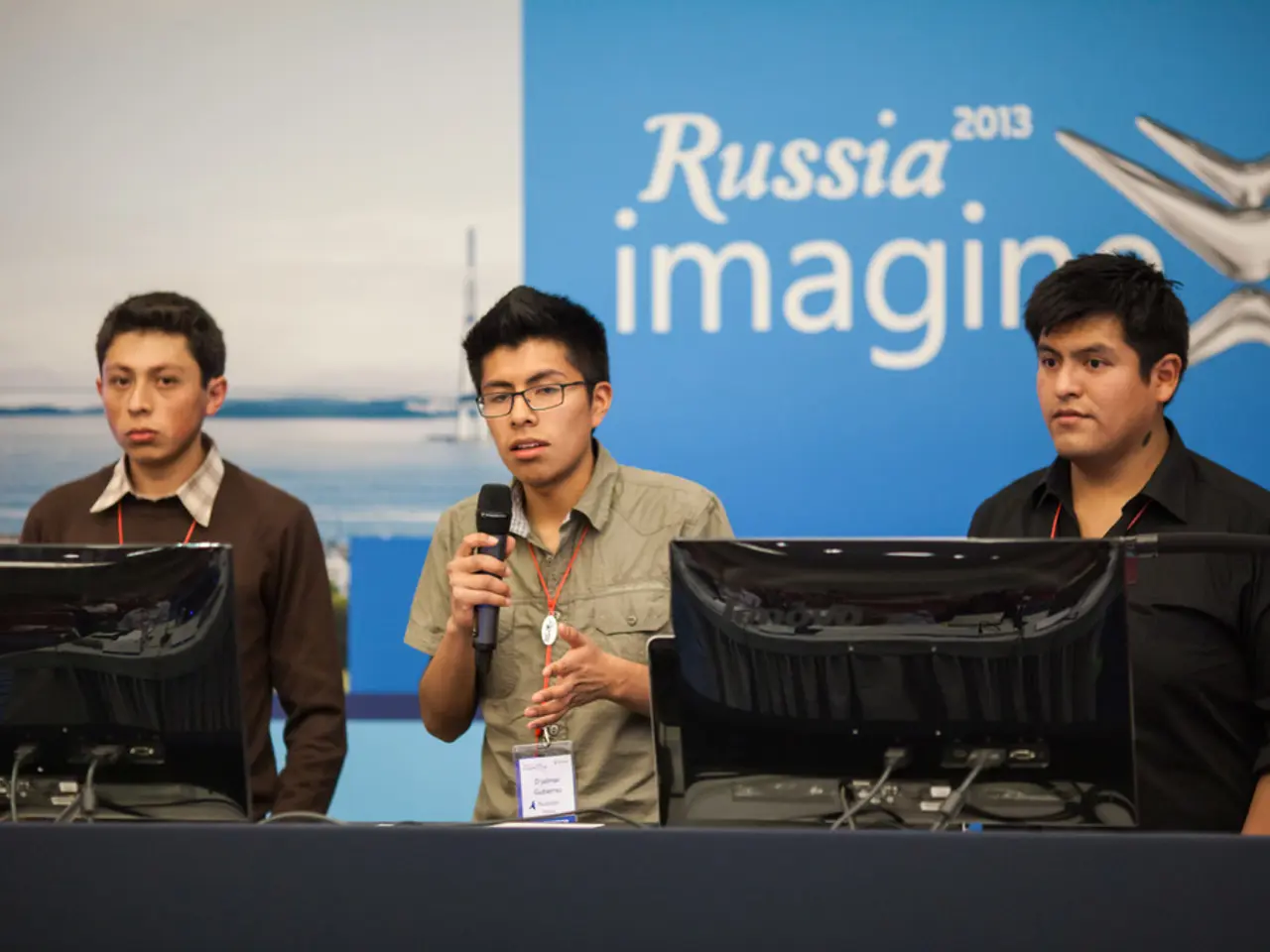Tech magnate Elon Musk unveils Dojo supercomputer, enlists Nvidia, Samsung, and AMD for AI hardware integration
Tesla Abandons Dojo Supercomputer Project, Shifts Focus to AI5 and AI6 Chips
In a significant move, Tesla has announced the discontinuation of its Dojo supercomputer project as of August 2025. The decision marks a strategic pivot in the company's AI efforts, with Elon Musk confirming that Tesla has disbanded the Dojo team and abandoned the planned Dojo 2 factory and its second-generation D2 chip [1][3][5].
Initially, the Dojo project aimed to train Tesla's Full Self-Driving (FSD) AI using a mix of Nvidia GPUs and Tesla's in-house D1 chips. However, shifting internal priorities have led Tesla to focus instead on its newer AI5 and AI6 chip architectures, manufactured by TSMC and Samsung [1][4][5].
The AI5 chip primarily powers Tesla's onboard inference for FSD, while the AI6 chip is designed for both onboard autonomous driving and large-scale AI training. Elon Musk clarified that the future of Dojo technology lives on through AI6 chips, which will be deployed in massive clusters combining many AI5/AI6 chips on a single board—effectively constituting a “Dojo 3” system that merges in-vehicle chip power with supercomputing capabilities [1][4].
This pivot allows Tesla to consolidate hardware development around highly capable, converged chips rather than maintaining a separate specialized supercomputer team. The new chip factory in Taylor, Texas, will produce Tesla's next-generation AI6 chip.
The decision to shut down Dojo comes during a period of company-wide restructuring at Tesla. Over the past year, the automaker has experienced multiple executive departures and thousands of job cuts. Notable departures include Jim Keller, who originally led Tesla's chip development, and Peter Bannon, who took over leadership after Keller left in 2018. Ganesh Venkataramanan, who succeeded Keller, left in 2023.
Tesla is shifting toward using more external technology partners for its AI efforts. The company will rely on Nvidia and AMD for compute power and on Samsung Electronics for chip manufacturing. In a significant development, Samsung secured a $16.5 billion deal to supply AI chips to Tesla, which will be used in self-driving cars, humanoid robots, and data centers.
About 20 Dojo workers have moved to DensityAI, a startup founded by former Tesla employees. DensityAI is expected to work on AI chips for data centers and robots, similar to Dojo's original mission.
Musk has stated that AI5 chips will begin production at the end of 2026, suggesting AI6 will follow. He posted that the Tesla AI5, AI6, and subsequent chips will be excellent for inference and at least pretty good for training.
In summary, while the Dojo supercomputer as initially conceived is discontinued, its core technology and ambitions are evolving into integrated AI chip strategies that underpin Tesla’s autonomous driving and robotics AI going forward. The AI6 chip cluster approach replaces Dojo, promising simpler, more scalable architecture. The goals of training FSD models on vast driving video data continue under this pivot with advanced chip systems.
[1] https://www.reuters.com/technology/tesla-said-to-be-abandoning-dojo-supercomputer-project-2021-08-19/ [3] https://www.bloomberg.com/news/articles/2021-08-19/tesla-said-to-be-abandoning-dojo-supercomputer-project [4] https://www.theverge.com/2021/8/19/22638987/tesla-dojo-supercomputer-project-shut-down-ai-chips-tsmc-samsung [5] https://www.cnbc.com/2021/08/19/tesla-abandons-dojo-supercomputer-project-to-focus-on-ai-chips.html
- Tesla's Dojo supercomputer project, initially scheduled for August 2025, has been abandoned, marking a shift in the company's AI focus.
- The decision follows Tesla's strategic pivot towards AI5 and AI6 chip architectures, which are scheduled for production by TSMC and Samsung.
- The AI5 chip will be deployed for onboard inference in Tesla vehicles, while the AI6 chip is designed for autonomous driving and large-scale AI training.
- The AI6 chip clusters, a replacement for the Dojo supercomputer, will combine many AI5/AI6 chips on a single board for a powerful, consolidated system.
- This reorientation allows Tesla to consolidate hardware development around highly capable, converged chips, rather than maintaining a separate supercomputer team.
- The new chip factory in Taylor, Texas, will produce the AI6 chip.
- The move follows a period of restructuring at Tesla, which has seen multiple executive departures and thousands of job cuts over the past year.
- Notable departures include Jim Keller, Peter Bannon, and Ganesh Venkataramanan, who successively led Tesla's chip development.
- Tesla is turning to external technology partners for its AI needs, relying on Nvidia, AMD, and Samsung Electronics for compute power and chip manufacturing.
- In a significant deal, Samsung has secured a $16.5 billion contract to supply AI chips to Tesla for use in self-driving cars, humanoid robots, and data centers.
- About 20 Dojo workers have joined DensityAI, a startup founded by former Tesla employees, to work on AI chips for data centers and robots.
- Elon Musk expects AI5 chips to begin production at the end of 2026, with AI6 chips to follow.
- The AI5, AI6, and subsequent chips are expected to excel in inference and offer decent performance for training.
- The evolution of Dojo's core technology and ambitions will underpin Tesla’s autonomous driving and robotics AI going forward, promising simpler, more scalable architecture.




